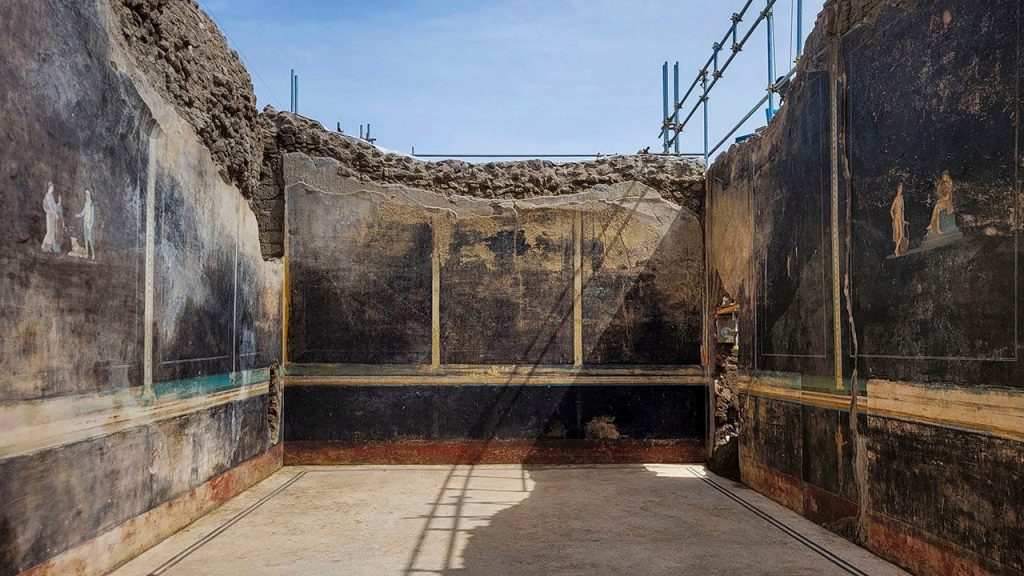A recent discovery made by a group of archaeologists excavating the doomed city of Pompeii has surprised many. The researchers uncovered a banquet hall complete with paintings inspired by the Trojan War. This discovery was announced earlier in the week and came as part of a project aimed at preventing further decay of the ruins of Pompeii. The city of Pompeii was a thriving metropolis near Naples until it was destroyed by the eruption of Mount Vesuvius in A.D. 79. Despite the deadly volcanic eruption, the city was remarkably preserved under layers of ash.
After being buried for centuries, Pompeii was rediscovered in the 18th century and has since become a popular destination for tourists and archaeologists. The ruins of Pompeii provide a complete picture of an ancient Roman city and have been designated a UNESCO World Heritage Site since 1997. The recently discovered banquet hall in Pompeii is believed to have been used for refined entertaining and features black walls designed to conceal smoke from oil lamps. The paintings found on the walls, including depictions of Helen of Troy, Apollo, and Cassandra, were likely intended to entertain guests and serve as conversation starters.
The newly excavated banquet hall measures approximately 45 feet long and 18 feet wide and opens to a courtyard near a staircase. This discovery marks a shift in focus for archaeologists working in Pompeii, as previous excavations had primarily focused on the villas of the city’s upper-class residents. More recent excavations have targeted areas where the middle class and servants lived, providing a more comprehensive understanding of daily life in Pompeii. The discovery of the banquet hall was part of an effort to make the Pompeii archaeological park more sustainable in the face of climate change.
Overall, the findings in Pompeii shed light on the ancient Roman city’s social structure, cultural practices, and architectural design. The banquet hall with paintings inspired by the Trojan War adds to the richness of the archaeological site and offers insight into the city’s entertainment and hospitality traditions. Through ongoing excavations and preservation efforts, researchers continue to uncover new facets of Pompeii’s history, providing valuable information about life in the ancient city before it was tragically destroyed by the eruption of Mount Vesuvius. The recent discovery of the banquet hall is a testament to the enduring significance and allure of Pompeii as a site of historical importance.


